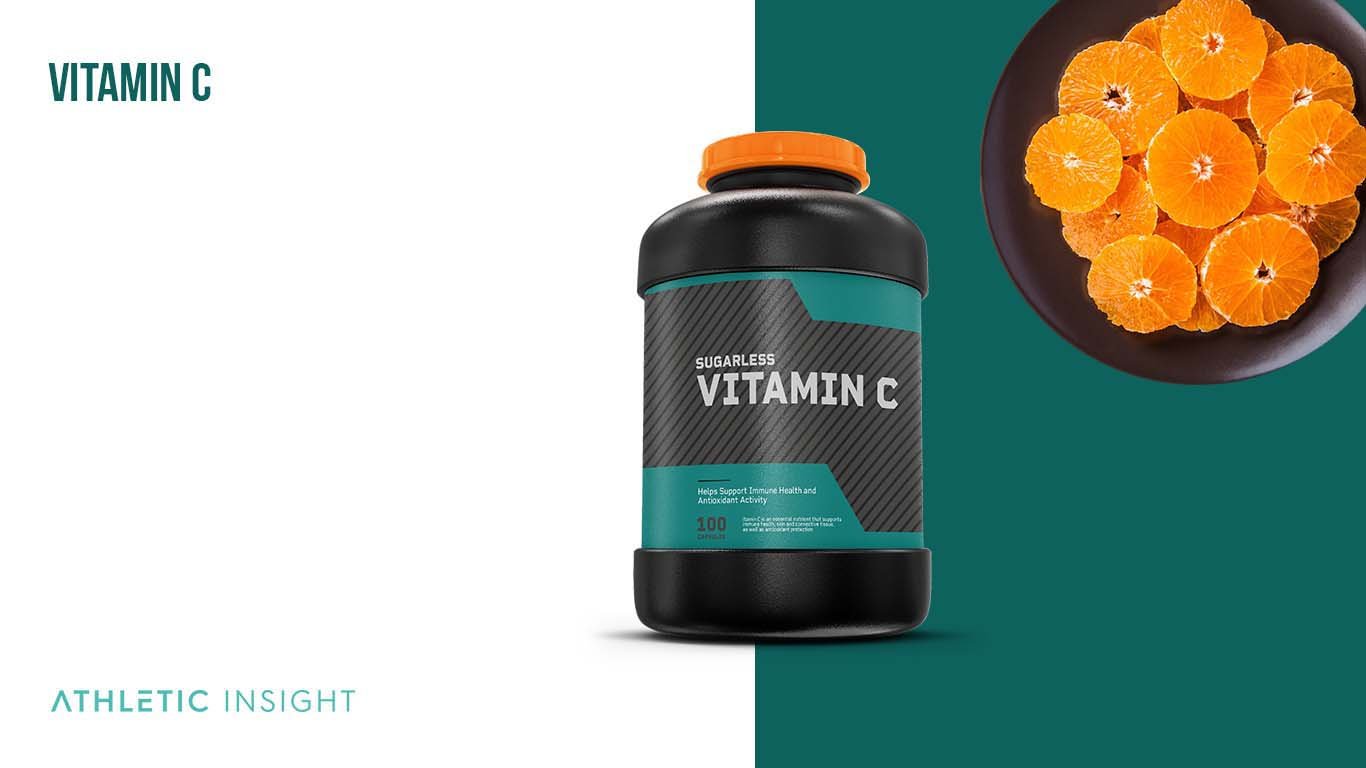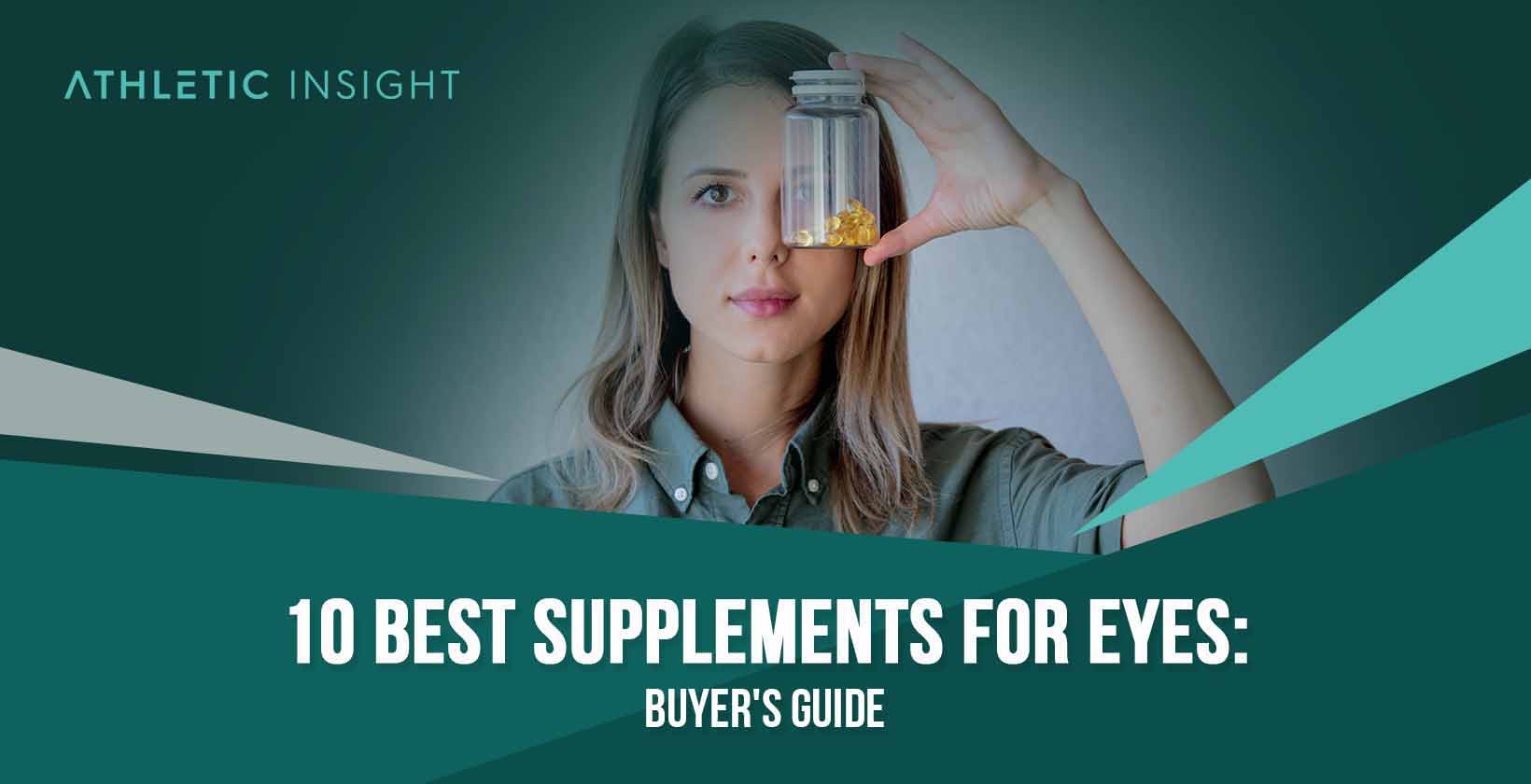Eye supplements, essential for maintaining optimal eye health, are specially formulated products designed to provide nutrients often lacking in a typical diet. Aided by rigorous scientific research, these supplements have been found to significantly influence eye health. While eye supplements cannot cure all eye health concerns, they can help with most.
The choice of supplements must be predicated on meticulous criteria: scientific evidence supporting effectiveness, product quality, brand reputation, cost-effectiveness, and, importantly, user reviews. This comprehensive guide seeks to simplify the process, presenting a meticulously curated list of the top eye supplements, with the three best overall being Thiamine, Vitamin C, and Niacin.
1. Thiamine
Thiamine, also known as Vitamin B1, plays an essential role in cellular function and energy metabolism. As an antioxidant, it neutralizes harmful free radicals and may help prevent cataracts. However, one should be wary of potential side effects such as skin irritation and allergic reactions. Generally, Thiamine is taken orally, with dosages varying according to age and health condition.
The top brands for quality Thiamine supplements includes Thorne, Solgar, NOW, and Nature’s Way. Important to note is that a balanced diet should provide adequate Thiamine; supplementation is typically necessary only in the case of deficiency or increased demand. As always, medical advice is recommended before starting supplementation. Thiamine supplements typically range in price, depending largely on brand reputation and product quality.
2. Vitamin C
Vitamin C, a water-soluble vitamin and potent antioxidant, helps combat oxidative stress in the eyes, reducing the risk of age-related macular degeneration and cataracts. Potential side effects include digestive disturbances at high doses. Generally consumed orally, this supplement’s recommended dosage varies depending on age, sex, and physiological status.

The top brands for the best Vitamin C supplements include Thorne, Doctor’s Best, NOW, and Nature’s Bounty. Vitamin C is plentiful in various fruits and vegetables, with supplementation generally required in situations of dietary inadequacy. Prices of Vitamin C supplements vary, contingent on factors such as brand reputation and product formulation.
3. Niacin
Niacin, or Vitamin B3, is a vital nutrient required for optimal ocular function. It supports cellular energy production and promotes vascular health, potentially decreasing the risk of glaucoma. Niacin can cause flushing and gastrointestinal upset at high doses. Oral supplementation is typical, with dosage based on individual health needs.
The best quality brands for Niacin supplements includes Thorne, Solgar, NOW, and Nature’s Made. While Niacin is abundant in various foods, supplementation may be necessary in certain cases. Costs fluctuate depending on the brand and formulation.
4. Vitamin E
Vitamin E, an essential fat-soluble antioxidant, plays a key role in protecting eye cells from damage by free radicals and may lower the risk of advanced age-related macular degeneration when used in combination with other antioxidants. Potential side effects include nausea, diarrhea, and stomach cramps at high doses. Vitamin E is generally taken orally, with dosage depending on individual needs.

The top brands for Vitamin E supplements include Thorne, Sundown Naturals, Nature Made, and Solgar. Vitamin E supplements vary in cost, contingent largely on factors such as brand reputation and formulation.
5. Vitamin A
Vitamin A, crucial for maintaining the health of the retina and cornea, promotes good vision, especially in low light. Potential side effects, particularly from excessive intake, include dizziness, nausea, and even hair loss. Typically consumed orally, this supplement’s dosage varies depending on age, sex, and physiological status.
The top brands for Vitamin A supplements include Thorne, NOW, Nature’s Way, and Solgar. Dietary intake of Vitamin A is typically adequate, with supplementation often necessary in cases of deficiency. The cost of Vitamin A supplements can vary, depending on factors such as brand reputation and formulation.
6. Riboflavin
Riboflavin, or Vitamin B2, is an essential nutrient that may protect against oxidative stress in the eyes and contribute to the prevention of cataracts. Potential side effects include itching, numbness, and burning or prickling sensations. Typically taken orally, Riboflavin dosage varies depending on age and health condition.
The top brands for Riboflavin includes Thorne, Nature’s Way, NOW, and Solgar. Riboflavin is abundant in various foods, with supplementation often necessary in cases of deficiency or increased demand. Costs of Riboflavin supplements can vary, depending on factors such as brand reputation and formulation.
/
7. Lutein and Zeaxanthin
Lutein and Zeaxanthin are carotenoids that accumulate in the retina, where they protect against harmful light and oxidative damage. These supplements may help to reduce the risk of chronic eye diseases, including age-related macular degeneration and cataracts. Potential side effects are rare but can include skin yellowing. These supplements are typically taken orally, with dosages depending on individual health needs.
Some of the top Lutein and Zeaxanthin brands include Puritan’s Pride, Nature’s Bounty, and NOW. Lutein and Zeaxanthin are naturally present in various foods; supplementation may be necessary for those with a poor diet. Costs of these supplements can vary, depending largely on factors such as brand reputation and formulation.
8. Omega-3 Fatty Acids
Omega-3 fatty acids, particularly EPA and DHA, have been found to support eye health by reducing inflammation and aiding in the prevention of macular degeneration and dry eye syndrome. Potential side effects include a fishy aftertaste, nausea, and diarrhea. These supplements are generally consumed orally, with dosage based on individual needs.

The top brands for Omega-3 supplements includes Thorne, Nordic Naturals, Nature Made, and NOW. Omega-3 supplements vary in cost, contingent largely on factors such as the source of omega-3, brand reputation, and formulation.
9. Vitamin B9 and B12
Vitamin B9 (Folate) and B12 (Cobalamin) are essential for maintaining optimal eye health, contributing to red blood cell formation and cellular function. Deficiencies can result in visual disturbances and damage to the optic nerve. Potential side effects include nausea, loss of appetite, and bloating. These supplements are typically taken orally, with dosage based on individual needs.
If you are after the best vitamin B9 and B12 supplements, the top brands include Solgar, NOW, and Nature Made. Vitamin B9 and B12 supplements vary in cost, depending on factors such as brand reputation and formulation.
10. Vitamin B6
Vitamin B6 is essential for the proper functioning of sugars, fats, and proteins in the body. It has been linked with nerve function, which extends to the nerves within the eye. Potential side effects include nausea, stomach pain, and loss of appetite. Typically consumed orally, Vitamin B6 dosage varies depending on age and health condition.
For the best Vitamin B6, consider one of the top brands such as Thorne, Nature’s Way, NOW, and Solgar. Costs fluctuate depending on brand reputation and formulation.
What is an Eye Supplement?
An eye supplement is a product designed to provide essential nutrients that help maintain eye health and function. These nutrients may be naturally lacking in an individual’s diet or may be required in larger amounts due to specific health conditions or aging. Eye supplements come in various forms, including capsules, tablets, soft gels, and liquids, and contain a variety of ingredients that have been researched for their effects on eye health.
What is the Importance of Eye Supplements?
The importance of eye supplements lies in their potential to fill nutritional gaps and protect against common eye conditions such as macular degeneration, dry eye syndrome, and cataracts. As we age, our nutrient requirements change, and the risk of developing eye-related conditions increases. A diet lacking essential vitamins and minerals exacerbates this risk. Therefore, eye supplements can play a vital role in maintaining eye health, particularly for individuals with dietary restrictions, certain health conditions, or aging adults.
How to Choose an Eye Supplement?
Choosing an eye supplement should be a careful process. First, consider the specific nutrients included in the product and their concentrations. Check for scientifically validated ingredients like Lutein, Zeaxanthin, and Omega-3 fatty acids. Second, look at the brand’s reputation and product reviews.

High-quality brands will have third-party testing to ensure purity and potency. Lastly, consider your personal needs and preferences, including any specific eye conditions, dietary restrictions, and cost.
- Ingredients: Consider the specific nutrients included in the product and their concentrations.
- Reviews: Look at the brand’s reputation and product reviews.
- Personal Needs: Consider your personal needs and preferences, including any specific eye conditions, dietary restrictions, and cost.
How Do Eye Supplements Work?
Eye supplements work by providing the body with essential nutrients that help maintain eye health. These nutrients support various aspects of eye function, including visual acuity, protection against oxidative stress, inflammation control, and maintenance of the structures of the eye. Some nutrients in eye supplements, such as Lutein and Zeaxanthin, are directly utilized in the eye, particularly in the retina. Others, like Omega-3 fatty acids, may contribute to eye health indirectly through their roles in overall cellular function and inflammation reduction.
Who Should Use Eye Supplements?
Eye supplements can be beneficial for a broad range of individuals. Those at risk of or currently experiencing age-related eye conditions, such as macular degeneration or cataracts, may benefit from specific eye supplements. Likewise, individuals with dietary restrictions or certain health conditions may require supplemental intake of certain nutrients for optimal eye health. However, it is recommended that anyone considering eye supplements consult with a healthcare professional to discuss their individual needs and potential risks.
What are the Benefits of Eye Supplements?
Eye supplements offer a variety of benefits. They provide essential nutrients that support overall eye health and vision, help protect the eyes from harmful light and oxidative damage, may aid in reducing the risk of age-related eye diseases, and can address specific eye conditions such as dry eye syndrome. Additionally, eye supplements can help fill any nutritional gaps in an individual’s diet, providing additional support for eye health.
Are Eye Supplements Effective?
Eye supplements can be effective, but their efficacy largely depends on the individual’s specific needs and the quality of the supplement. Research supports the use of certain nutrients, such as Lutein and Zeaxanthin, for eye health, particularly in reducing the risk of age-related eye diseases.
However, the effectiveness of eye supplements may vary between individuals based on factors such as age, diet, overall health, and specific eye conditions. Therefore, it is crucial to discuss supplementation with a healthcare professional to ensure it aligns with one’s individual needs and expectations.
Are there any potential interactions between eye supplements and medications?
Yes, certain eye supplements may interact with specific medications. For example, Vitamin E can interfere with blood thinners and cholesterol-lowering drugs, while Vitamin A can interact with certain antibiotics and acne medications. Therefore, it’s essential to consult with a healthcare provider before starting any new supplement regimen.
Can I take multiple eye supplements at once?
Yes, multiple eye supplements can be taken concurrently. However, the decision to combine supplements should be based on your specific health needs and in consultation with a healthcare provider. This is to ensure you’re not exceeding the recommended daily intake of certain nutrients and to avoid potential interactions between supplements.

Can I take eye supplements if I am pregnant or breastfeeding?
While some eye supplements may be safe for pregnant or breastfeeding women, others may not be recommended. For instance, high doses of Vitamin A can potentially be harmful during pregnancy. Always consult with a healthcare provider before starting any supplement regimen during pregnancy or while breastfeeding.
How long will it take to see results from taking eye supplements?
The timeframe for seeing results from eye supplements can vary widely depending on the individual and the specific supplement. Some people may notice improvements in symptoms like dry eyes within a few weeks, while others may require several months of consistent use to see a noticeable difference, particularly for conditions such as age-related macular degeneration.
Are there any foods that naturally contain these essential eye nutrients?
Yes, many of the nutrients beneficial for eye health can be found in a balanced diet. For example, Lutein and Zeaxanthin are found in leafy greens and other vegetables, Omega-3 fatty acids are abundant in fatty fish, and Vitamins A, C, and E can be found in a variety of fruits, vegetables, nuts, and seeds. However, for some individuals, dietary intake may not be sufficient to meet their specific nutrient needs for eye health, making supplements a valuable addition.
Can Eye Supplements be taken with other Health Supplements?
Yes, you can take eye supplements with other health supplements. However, it is important to be mindful of the ingredients found within all of your supplements. For example, if you were already taking Vitamin C, but decided to take a multivitamin to get Vitamin A in your diet, you no longer need to take Vitamin C since the multivitamin will most likely already contain more than 100% of the daily recommended value.



